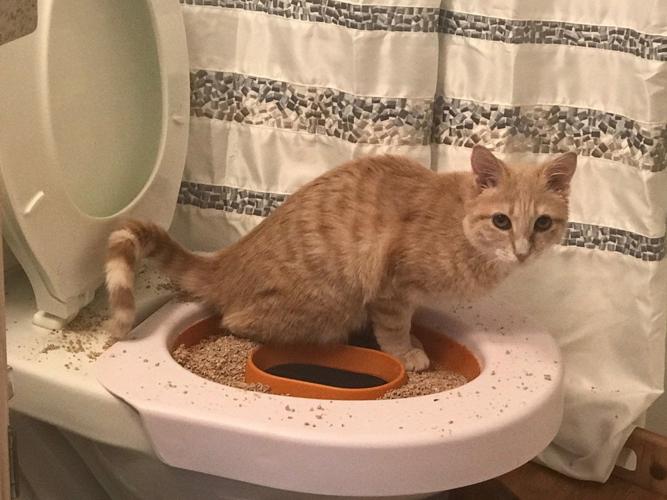Prevent Toilet Disasters: Don't Flush Cat Poop Down Your Toilet - Expert Guidance
Prevent Toilet Disasters: Don't Flush Cat Poop Down Your Toilet - Expert Guidance
Blog Article
On this page in the next paragraph you can locate some professional help and advice concerning Don’t flush cat feces down the toilet.

Introduction
As feline owners, it's essential to bear in mind just how we throw away our feline good friends' waste. While it might appear practical to flush pet cat poop down the bathroom, this practice can have detrimental repercussions for both the atmosphere and human wellness.
Ecological Impact
Flushing pet cat poop introduces unsafe virus and parasites right into the water system, positioning a substantial danger to aquatic environments. These contaminants can negatively affect marine life and concession water quality.
Health and wellness Risks
Along with environmental concerns, flushing cat waste can also pose health risks to humans. Pet cat feces may include Toxoplasma gondii, a bloodsucker that can trigger toxoplasmosis-- a possibly severe disease, especially for pregnant females and individuals with weakened immune systems.
Alternatives to Flushing
Luckily, there are more secure and much more liable methods to take care of cat poop. Think about the adhering to alternatives:
1. Scoop and Dispose in Trash
One of the most usual approach of dealing with cat poop is to scoop it right into a naturally degradable bag and throw it in the trash. Make certain to use a committed trash scoop and get rid of the waste immediately.
2. Use Biodegradable Litter
Opt for biodegradable pet cat trash made from products such as corn or wheat. These trashes are environmentally friendly and can be securely thrown away in the trash.
3. Hide in the Yard
If you have a yard, think about hiding cat waste in a marked area far from vegetable yards and water resources. Be sure to dig deep sufficient to avoid contamination of groundwater.
4. Install a Pet Waste Disposal System
Invest in a pet garbage disposal system specifically designed for pet cat waste. These systems utilize enzymes to break down the waste, decreasing smell and environmental influence.
Final thought
Liable family pet ownership expands beyond providing food and shelter-- it additionally includes correct waste monitoring. By refraining from purging pet cat poop down the bathroom and going with alternate disposal approaches, we can minimize our environmental impact and protect human health.
Why You Should Never Flush Cat Poop Down the Toilet
A rose by any other name might smell as sweet, but not all poop is created equal. Toilets, and our sewage systems, are designed for human excrement, not animal waste. It might seem like it couldn’t hurt to toss cat feces into the loo, but it’s not a good idea to flush cat poop in the toilet.
First and foremost, assuming your cat uses a litter box, any waste is going to have litter on it. And even the smallest amount of litter can wreak havoc on plumbing.
Over time, small amounts build up, filling up your septic system. Most litter sold today is clumping; it is made from a type of clay that hardens when it gets wet. Ever tried to scrape old clumps from the bottom of a litter box? You know just how cement-hard it can get!
Now imagine just a small clump of that stuck in your pipes. A simple de-clogger like Drano isn’t going to cut it. And that means it’s going to cost you big time to fix it.
Parasitic Contamination
Believe it or not, your healthy kitty may be harboring a nasty parasite. Only cats excrete Toxoplasma in their feces. Yet it rarely causes serious health issues in the cats that are infected. Most people will be fine too if infected. Only pregnant women and people with compromised immune systems are at risk. (If you’ve ever heard how women who are expecting are excused from litter cleaning duty, Toxoplasma is why.)
But other animals may have a problem if infected with the parasite. And human water treatment systems aren’t designed to handle it. As a result, the systems don’t remove the parasite before discharging wastewater into local waterways. Fish, shellfish, and other marine life — otters in particular — are susceptible to toxoplasma. If exposed, most will end up with brain damage and many will die.
Depending on the species of fish, they may end up on someone’s fish hook and, ultimately on someone’s dinner plate. If that someone has a chronic illness, they’re at risk.
Skip the Toilet Training
We know there are folks out there who like to toilet train their cats. And we give them props, it takes a lot of work. But thanks to the toxoplasma, it’s not a good idea.

I discovered that entry about Don’t flush cat feces down the toilet while browsing the web. Do you know anybody else who is excited about the topic? Please feel free to promote it. Thank you for taking the time to read it.
About Report this page